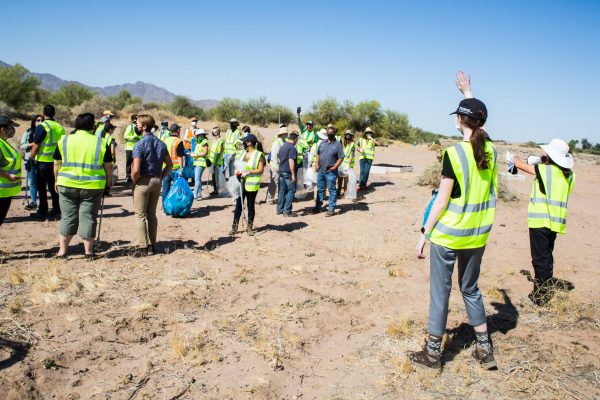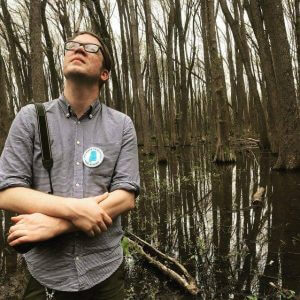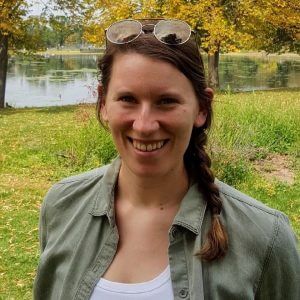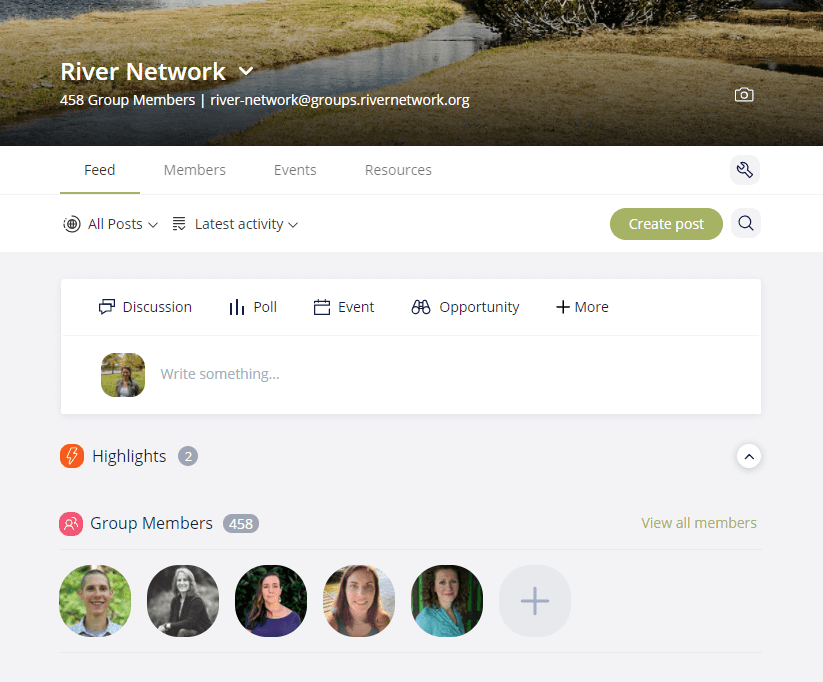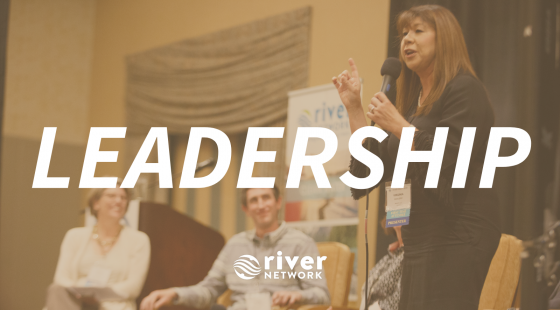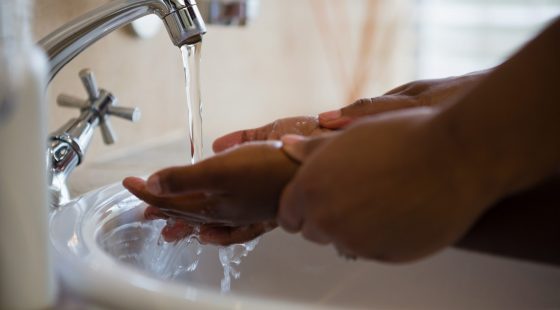River Voices: May 2021

Welcome to the May 2021 edition of River Voices. This month, we’re exploring what community looks like for the network today – from local events that encourage individual action for community waterways, to online information sharing and connection. Plus, River Rally is just a few weeks away!
In 2020, there were 26 billion pieces of litter along America’s waterways, according to data compiled by Keep America Beautiful. At River Network, we know how fun it can be to come together as a community to clean up litter, and with new apps like Litterati, we can bring that fun home, too. Hear from Karla Noboa, Community Engagement Manager, on our recent Earth Day events, how individuals are making a difference in their communities, and a brand new video to guide you in planning your own clean up events.
“I think that is what environmental organizations need to be doing more of—supporting these community groups and incorporating the grievances and recommendations of frontline communities into all environmental justice work.”
2021 Emerging Leader, Charles Miller, has a strong interest in water law and democracy, with a focus on how it can be managed for the public good and with meaningful public input in the face of climate change.
With just a few weeks left until River Rally 2021, it’s time to register and join hundreds of water protectors from across the country for education, inspiration, and celebration.
This year’s speakers include Radhika Fox, Tanya Trujillo, Catherine Coleman Flowers, Sandra Postel, Tom Kiernan, Raj Shukla, Na’Taki Osborne Jelks, and more. Don’t miss your chance to connect with the network.
Download the program to learn more and register today.
Meet Carly Schmidt, River Network’s Membership Associate. Carly provides support to member organizations across the country. She is always looking for opportunities for the national network of water protectors to learn and connect with peers at River Rally and online.
Read more about her work setting up River Network’s online community in her recent blog post, “How River Network Is Building Community, Online.”
How River Network Is Building Community, Online
In January of this year, we launched an online community for the nationwide network of water protectors. What you might not have noticed when we launched the community was the year-long research and feedback process we conducted in order to find the right forum that would meet the network’s needs. Hear from Carly Schmidt, River Network’s Membership Associate on what went into this process and our approach to fostering community in an online space.
“When talking with college students and early in their career professionals about leadership, I emphasize that being a leader is not tied to a job title, a position within an organization, or whether or not you manage staff. Anyone can be a leader and everyone should be given the opportunity to develop, grow, and enhance their leadership skills.”
River Network’s Brenna Goggin has a new blog post out about our leadership development services and what it takes to be an effective leader (hint: it’s not a job title!).
Our current strategic plan outlines four key issue areas that are key to responding to the water crisis in the US, one of which is Clean, Safe, and Affordable Drinking Water. Now, you can explore all our work related to drinking water and water infrastructure, and connect with our staff working on these issues, in just one place. Find information on how to connect with peers, what projects we’re working on now, and quick links to all the drinking water content on our blog.
Look for new pages on our other key issues later this year!
Events & Learning Opportunities
Fostering Community Leadership: Designing Effective Development Programs
May 12, 4 pm ET
Join River Network’s Hannah Mico and representatives from two of the organizations who are featured in our new Fostering Leadership Development toolkit for a training on building community-based leadership initiatives.
Three Ways to Boost the Changemaking Power of Grants
May 20, 1pm ET
After training thousands of nonprofit staff members, Barbara Floersch has identified common misperceptions that limit the change-making power of grants. This session will call out three of them, reframe each, and provide examples of how the new mindset will lead to more impactful programs.
Choose Clean Water Conference
May 24 – 26
The Choose Clean Water Coalition is excited to gather its members for the first-ever (and hopefully last!) virtual Choose Clean Water Conference. The theme, A Changing Chesapeake, will explore the changes we are seeing not only in the Chesapeake Bay and its rivers and streams, but also within our own organizations.
Urban Institute Equity Scholars
The Urban Institute is kicking off a new effort to grow the field of researchers building evidence to accelerate racial justice and strengthen equity across society. Our Equity Scholars program offers emerging and established scholars the opportunity to deepen their own research on race, equity, and/or structural racism while contributing to equity-focused analyses underway at Urban. Over two years, as members of a cohort, Equity Scholars will develop research to interrogate the effects of structural racism on people and places, develop evidence-based solutions to advance racial equity, and share their insights to decision-makers best positioned to act.
CDRW’s Diversity, Equity, Inclusion, and Justice Toolkit, Vol. 2
The Coalition for the Delaware River Watershed has released the second volume of their DEIJ toolkit. The purpose of this toolkit is to provide resources that empower our members and partners to take mindful action to break down the barriers that hinder participation in the environmental and conservation sector.
“The Opportunity on Water” from Water Hub at Climate Nexus
Water Hub at Climate Nexus published “The Opportunity on Water” in April. In it, they make the case that water can be a unifying issue in a time of deep division. They summarize polling that shows near-universal concern among US voters about water quality and supply and include recommendations for how to meet this moment.
Environmental Justice Small Grants Program – EXTENDED
The Environmental Justice Small Grants Program supports communities working on solutions to local environmental and public health issues. The program funds projects up to $50,000, depending on the availability of funds in a given year.
US EPA has extended the program’s application deadline to June 1.
“Navigate the Flood” from Water Center at Penn and WaterNow Alliance
This new guide streamlines local decision-maker’s and city and utility staff’s navigation of the vast and complex array of technical guidance and funding resources for stormwater and flood planning and management. Created with local decision makers in mind, it features a curated list of external technical and financial resources.
Science Corner: Community Volunteers Fill Data Gaps During the Pandemic
The latest from our science team.
Over the last year, our network members have had to rethink how they conduct their monitoring programs to consider physical distancing requirements and increased safety protocols. Most organizations even had to put a complete pause on data collection, leaving gaps in their data sets. Luckily, it didn’t take long for organizations to find new, innovative ways of operating, including leaning on technology and their own communities for support. Community scientists have stepped up big time to help fill data gaps and lend support to their local monitoring programs. Organizations are reporting a surge in volunteer participation as community members are jumping at the opportunity to get outside.
Our network is making it even easier for volunteers to participate by shifting to virtual trainings and utilizing phone apps for equipment-free data collection. The South Carolina Adopt-a-Stream Program converted their full day, in-person workshop to a virtual, asynchronous training to recertify their volunteers. This shift has created flexibility for their volunteers, who can now learn on their own time, and has yielded very positive feedback from participants. This is a COVID shift that is here to stay! Others in our network, like the Buffalo Niagara Waterkeeper, have started relying more on online data collection applications like Water Reporter. Water Reporter allows volunteers to observe sites on their own time, and collect and submit data to an organization’s data collection campaign. Easily accessible, user friendly apps are bringing new volunteers to the community science space and creating stronger connections between communities and their local waterways.
What We’re Reading & Listening To
The Serviceberry — In Robin Wall Kimmerer’s December essay in Emergence, “she considers the ethic of reciprocity that lies at the heart of the gift economy. How, she asks, can we learn from Indigenous wisdom and ecological systems to reimagine currencies of exchange?”
Redlined, Now Flooding — A new storymap from Bloomberg shows that “[c]ontemporary maps for flood risk overlap in striking ways with New Deal–era maps used by the federal government to assess risk for mortgage lending.”
HEATED’s Line 3 reporting — Emily Atkin spent time in Minnesota at the end of March, reporting on the Line 3 pipeline. Read firsthand reporting on how Indigenous water protectors are standing up to the project.
“We Can’t Build Back Better Without Water” — Dolores Huerta and Jonathan Nelson’s oped in Latino Rebels outlines the importance of water affordability, and why it should be a key element of any national infrastructure plan.


